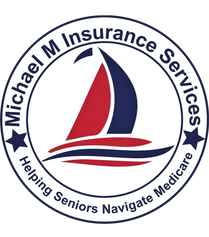If you’re enrolled in Medicare and need medical equipment like a hospital bed or wheelchair,
you’re not alone—and you’re not out of luck. Medicare can help cover many types of Durable
Medical Equipment (DME), but you need to follow the right steps. Unfortunately, this is one area
where a lot of people get confused or end up paying more than they should.
What Counts as Durable Medical Equipment (DME)?
First things first—DME is equipment your doctor prescribes for use in your home to help
manage a medical condition or recovery. To qualify for Medicare coverage, the item must be:
- Medically necessary
- Able to withstand repeated use
- Used for a medical reason
- Used in your home
- Expected to last at least 3 years
Common Medicare-Covered DME Includes:
- Hospital beds
- Wheelchairs (manual or power)
- Walkers
- Canes
- CPAP machines
- Oxygen equipment
- Patient lifts
- Nebulizers
- Commode chairs
Does Medicare Cover Hospital Beds and Wheelchairs?
- Manual, semi-electric, and sometimes fully electric beds (based on medical need)
- Side rails
- Mattresses
- Have a condition that requires frequent changes in body position
- Be confined to bed in your home for medical reasons
- Have limited mobility due to a health condition
- Be unable to perform daily activities like bathing, dressing, or getting out of a chair even with a cane or walker
- Have a doctor’s written order
- Be able to use the device safely in your home
What Will Medicare Pay?
Most Durable Medical Equipment is covered under Medicare Part B.
- The Part B annual deductible (in 2025, that’s $257)
- 20% of the Medicare-approved amount for the equipment
Step-by-Step: How to Get DME Like a Hospital Bed or Wheelchair
1. Visit Your Doctor
- Assess your condition
- Document why the equipment is necessary
- Write a detailed order or prescription
2. Find a Medicare-Approved Supplier
Only Medicare-enrolled suppliers who accept “assignment” can give you the lowest cost. Assignment means they’ve agreed to charge no more than the Medicare-approved price.
- Visit Medicare.gov’s supplier search tool
- Call ahead and confirm they:
- Accept Medicare assignment
- Have the equipment you need
- Will handle billing to Medicare
What If I’m in a Medicare Advantage Plan?
Medicare Advantage (Part C) plans must cover DME, but the rules, networks, and copays
vary by plan. You’ll typically need to:
- Use a plan-approved provider
- Get prior authorization
- Call your plan’s customer service number to confirm the steps
What Happens If Medicare Denies My Request?
- The documentation wasn’t complete
- The supplier didn’t follow protocol
- The item wasn’t considered “medically necessary”
- File an appeal (instructions are on your Medicare Summary Notice)
- Contact your doctor and supplier to fix the issue
- Ask for help from a local SHIP counselor (State Health Insurance Assistance Program)
Avoid These Common Mistakes
- Don’t buy from a random medical supply store If they don’t accept Medicare assignment, you could be stuck with the full bill.
- Don’t skip the doctor visit You must have a current order on file. No prescription = no coverage.
- Don’t wait until the last minute Some equipment (like power wheelchairs) can take time to approve.
- Don’t assume Medicare covers everything Some items like grab bars or shower chairs may not be covered.
445 Broadhollow Rd. Suite 25, Melville, NY 11747
You Don’t Have to Navigate This Alone
(Mail: PO Box 465, Brightwaters, NY 11718)
📞 Phone: 631-774-3786
📧 Email: mmilinsurance@gmail.com
🌐 Website: mymedicaremike.com

